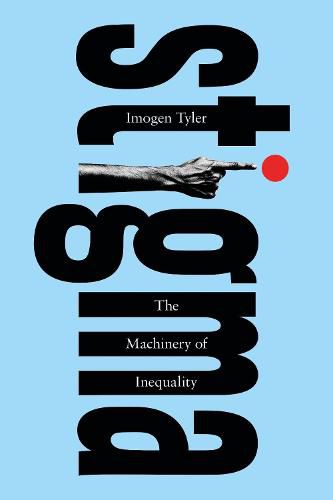Readings Newsletter
Become a Readings Member to make your shopping experience even easier.
Sign in or sign up for free!
You’re not far away from qualifying for FREE standard shipping within Australia
You’ve qualified for FREE standard shipping within Australia
The cart is loading…






Stigma is a corrosive social force by which individuals and communities throughout history have been systematically dehumanised, scapegoated and oppressed. From the literal stigmatizing (tattooing) of criminals in ancient Greece, to modern day discrimination against Muslims, refugees and the ‘undeserving poor’, stigma has long been a means of securing the interests of powerful elites.
In this radical reconceptualisation Tyler precisely and passionately outlines the political function of stigma as an instrument of state coercion. Through an original social and economic reframing of the history of stigma, Tyler reveals stigma as a political practice, illuminating previously forgotten histories of resistance against stigmatization, boldly arguing that these histories provide invaluable insights for understanding the rise of authoritarian forms of government today.
$9.00 standard shipping within Australia
FREE standard shipping within Australia for orders over $100.00
Express & International shipping calculated at checkout
Stigma is a corrosive social force by which individuals and communities throughout history have been systematically dehumanised, scapegoated and oppressed. From the literal stigmatizing (tattooing) of criminals in ancient Greece, to modern day discrimination against Muslims, refugees and the ‘undeserving poor’, stigma has long been a means of securing the interests of powerful elites.
In this radical reconceptualisation Tyler precisely and passionately outlines the political function of stigma as an instrument of state coercion. Through an original social and economic reframing of the history of stigma, Tyler reveals stigma as a political practice, illuminating previously forgotten histories of resistance against stigmatization, boldly arguing that these histories provide invaluable insights for understanding the rise of authoritarian forms of government today.